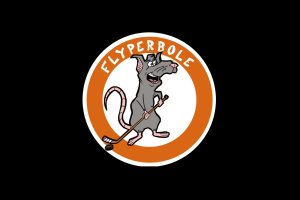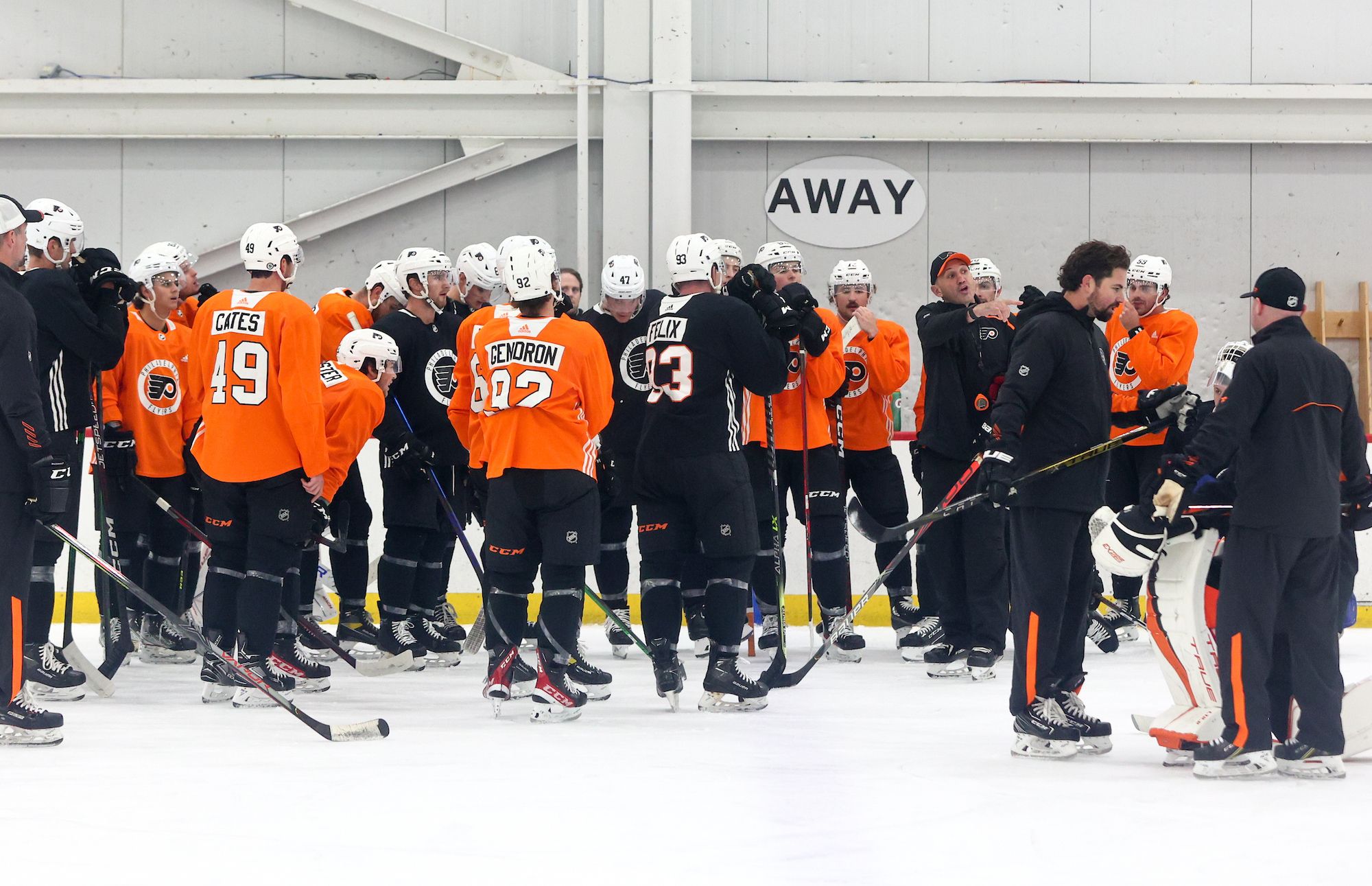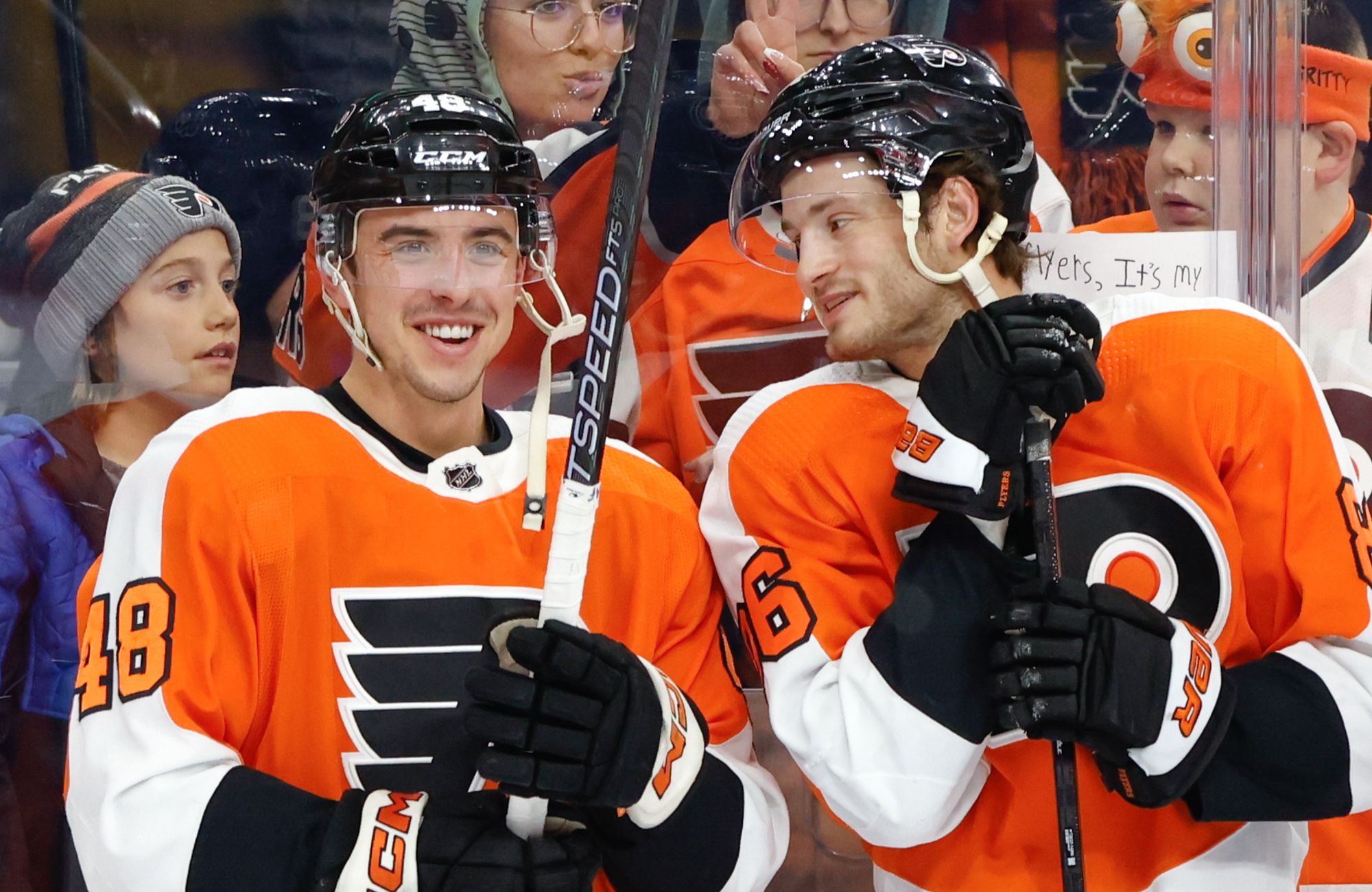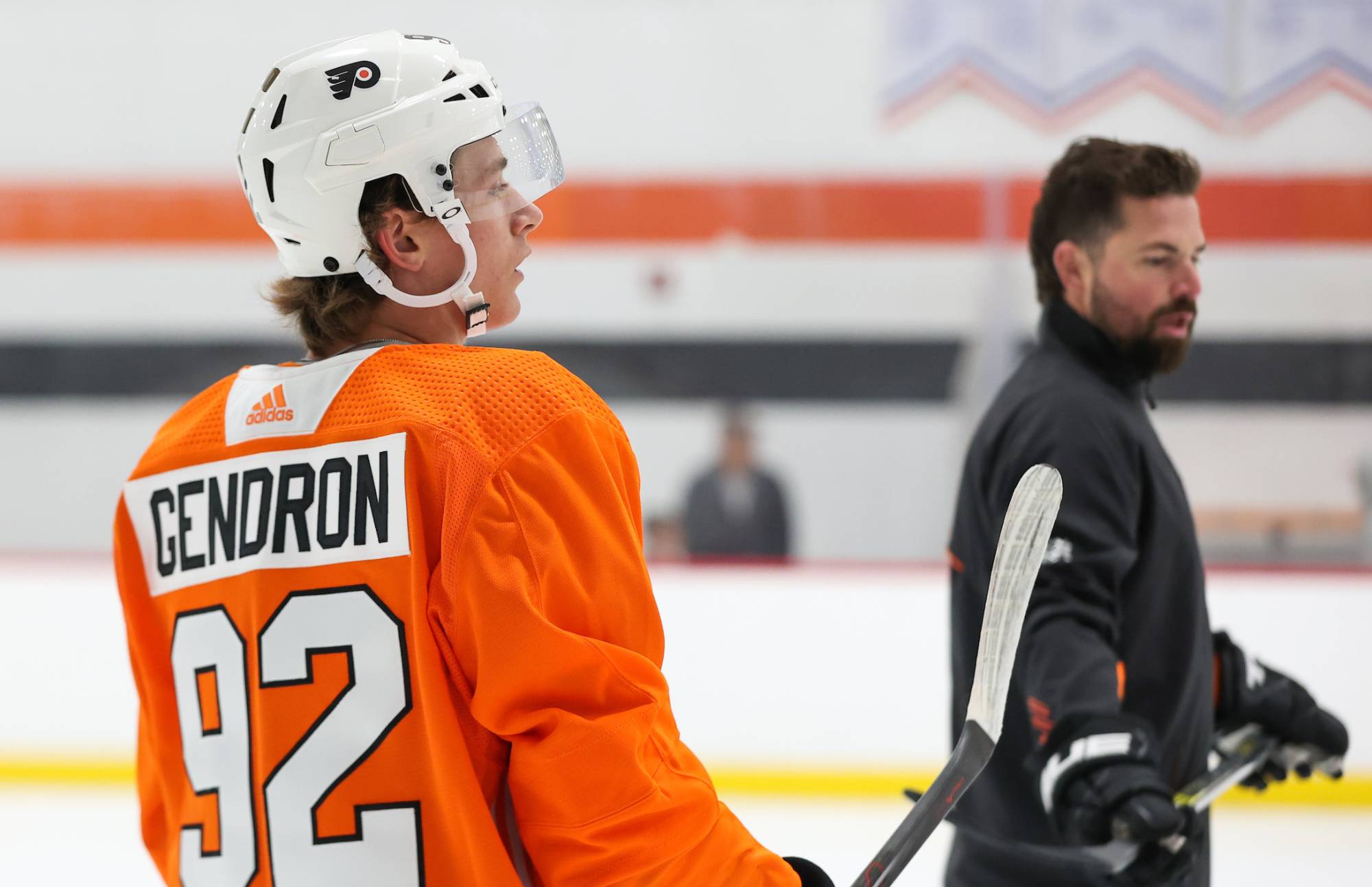Morning Observations is a new feature, where we will break down the previous night’s game with an analytical eye.
- Post-game discussion usually centers around the role players on the Flyers – line combinations, defensive pairings, which fourth liner should be scratched. But Philadelphia’s first line really is the engine that makes this team go. With both Giroux and Voracek off to slow scoring starts, the Flyers followed suit, potting only eight goals in five games. That changed last night, as the team’s stars were back to their dominant selves in the third period and overtime. Giroux had a nightmare first period, turning the puck over before Brett Connolly’s goal and then taking a bad penalty that led to Bergeron’s tally. But he cancelled out those mistakes with two late goals to lead his team to victory. Voracek and Giroux’s underlying numbers had remained strong despite the lack of tangible scoring, and the two broke through at the perfect time for Philadelphia.
- The Flyers may have fell behind by two goals, but their play at even strength was not the problem. They got the better of Boston in the first period, only finding themselves tied due to a defensive zone breakdown and a power play goal against. And obviously they carried the play in the third period, as the Bruins did not even muster a shot on goal during the final 12 minutes of regulation. But even in the undeniably ugly second period, the Flyers basically broke even in terms of 5v5 possession, as they were out attempted 14-13 but won the scoring chance battle 9-8. The third period surge, therefore, shouldn’t have been a huge surprise – add score effects to the fact that the Flyers were already outplaying the Bruins, and you had the recipe for a comeback.
NHL.com Report | Highlights | War-On-Ice.com Report | HockeyStats.ca Report | ExpectedGoals (xG) | HockeyViz.com | BSH Recap | Meltzer’s Musings
- Giroux will earn the headlines, but Jakub Voracek to me was the most dominant forward on the ice for the Flyers. From the start, he was nearly impossible to knock off the puck, channeling his inner Jaromir Jagr. Giroux’s first goal was almost entirely due to the hard work of Voracek, who forced a turnover below the red line and slipped a beautiful pass to his captain that would have been tough not to bury. Then, in overtime, it was an textbook box out along the boards by Voracek that kept the puck alive and eventually led to the game winner. Jake may not have a goal yet this season, but last night should have washed away any lingering concerns about his game./
- Lost in the excitement of the Flyers’ comeback was the injury to Sean Couturier. The team’s shutdown center likely suffered a concussion due to Zac Rinaldo’s charge, and could be out for a while. Unfortunately, the Flyers do not have another center who can replace Couturier’s defensive prowess or his forechecking strength, unless Dave Hakstol plans to dramatically increase Claude Giroux’s minutes. I suspect that Scott Laughton will move up on the depth chart and Sam Gagner will be shifted to third line center, as he received some minutes in that role last night. The real wild card would be dressing Vincent Lecavalier, but his diminished speed and inconsistent backchecking leads me to believe that Vinny would be a terrible fit in this system.
- Instead of reuniting the Michael Del Zotto and Luke Schenn pairing that received so much ice time last season, Hakstol chose to place Radko Gudas with Del Zotto in the wake of Schenn’s return to the lineup. From puck drop, the pairing was a disaster. Without a steady partner like Medvedev, Gudas’s game lacked any structure whatsoever, and Del Zotto wasn’t much better. I’d rather Hakstol put Gudas back with Medvedev, with whom he has at least been serviceable, and bring back the Del Zotto-Schenn pairing. That pair actually posted decent possession statistics last season (51.3% Corsi For), even if they struggled in terms of goals against.
- While the Flyers are still in the early stages of the Dave Hakstol era, his preferred tactics have already taken shape. One such strategy is an aggressive two-man forecheck to prevent controlled zone exits by the opposition, followed by a Flyers defenseman immediately chipping the puck back into the offensive zone to keep the pressure on. Last night, Philadelphia used a variation of that strategy to catch the Bruins on lazy line changes, resulting in goals by Sam Gagner and Wayne Simmonds. The focus on immediate re-entry into the offensive zone has the Flyers playing dump-and-chase more than I would like, but with the ice more open during line changes, Philadelphia was finally able to send forwards into the zone with control. The results were eye-opening./
- We’re only six games into the season, but I feel confident in this claim – Evgeny Medvedev is far and away the team’s best defenseman. He’s posted only one game with a negative Corsi Relative, when he finished with a still-respectable -0.7% against Chicago. So how is he doing it? While there are other positive aspects to his game, Medvedev’s best skill has been his ability to own the neutral zone. Medvedev supports his forechecking forwards perfectly, cutting off cross-ice passes and bottling up rushes along the boards. The style does result in a reliance on dump-and-chase hockey, but it’s tough to argue when the Flyers spend almost all of Medvedev’s shifts in the offensive zone. The Flyers’ playoff hopes required a defenseman to step up and be a regular play driver, and through six games, Medvedev hasn’t just been good – he’s been playing at first-pair defenseman level. What a signing by Ron Hextall. Hopefully I’ll have an article breaking down Medvedev’s play ready in the coming days.
- From the Flyers’ best defenseman to their worst. Nick Schultz somehow found a way to post a Corsi For of 40%, while no other blueliner finished with possession statistics less than break-even. Boston’s fourth goal illustrates Schultz’s issues perfectly. The Bruins moved through the neutral zone on a two-on-two rush with some speed, but with Sam Gagner backchecking, the pair of Schultz and Streit had support. Streit challenges the puck carrier, but Schultz backtracks a full stick length behind Streit, allowing for Krejci to easily slide the puck over the Hayes for a zone entry. Sure, Schultz then forces Hayes to the outside and limits him to a shot that Mason should have stopped. But this was an opportunity for Schultz to be aggressive and try to prevent the controlled entry entirely. He had backchecking support. His partner was holding a higher line. It wasn’t an odd man rush. Instead, Schultz chose to play passive, and got burned as a result. If he simply isn’t capable of changing his defensive style, Hakstol needs to get Schultz away from Streit as soon as possible.
- Sam Gagner was expected to sit out tonight’s game as a healthy scratch, but the late announcement of Brayden Schenn’s injury changed Hakstol’s plan. Gagner quickly proved that he deserves to avoid the press box, unleashing a wicked wrist shot past Tuukka Rask for his third point in four games. Gagner undoubtedly should stay in, but the man who was supposed to replace him made a convincing case as well. R.J. Umberger looks like a brand new player, bringing a speed and physicality to his line that was missing all of last season. He’s not the 2C from his prime, but there’s no reason he can’t be a useful top-nine forward so long as he stays healthy. But who comes out of the lineup to accommodate Gagner and Umberger? For now, the injuries to Schenn and Couturier will keep them both active. When everyone is healthy, however, I love the idea of putting Umberger on the fourth line and potentially moving him up mid-game to replace a struggling forward.
- On Tuesday night, I was frustrated by the insistence of the second power play unit to play dump-and-chase hockey. Last night, both units fell into the trap, resulting in a disastrous five-minute power play that almost buried the Flyers. Against the Bruins, however, the uncontrolled entries were more a by-product of poor routes and a lack of speed from the puck carriers through the neutral zone rather than a conscious tactic. Philadelphia seemed frustrated by Boston’s neutral zone structure and could not gain easy entry to the offensive zone as a result. I expect that Hakstol will be working on this with his team in practice prior to Saturday’s matchup against the Rangers, as the power play will be essential to hanging with a top-tier opponent.









